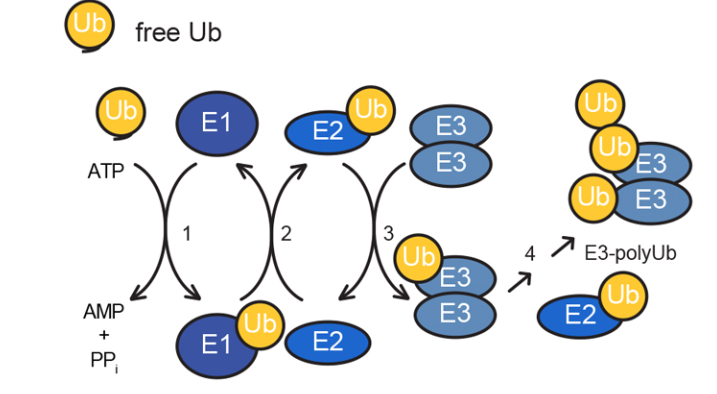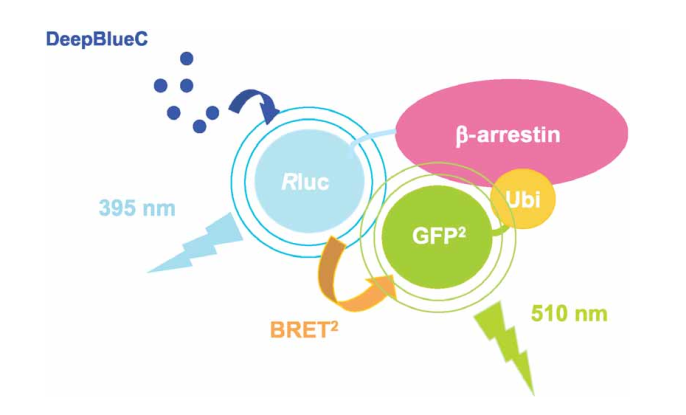Custom Protein Ubiquitination Services
Ubiquitylation is one of the most prevalent post-translational modifications (PTM) within cells. Ubiquitin modification induces protein degradation, which effect on protein function, localization and activity. Therefore, the study of protein ubiquitination plays an important role in cell biology and drug discovery. As a professional PROTAC services provider, Profacgen offers various ubiquitin services to help our customers to accelerate research progress and obtain better results.
In Vitro ubiquitin conjugation reactions
In vitro ubiquitin conjugation reactions are relatively quick and simple method to carry out and answer to whether protein interested ubiquitinated, is it mono-ubiquitinated, poly-ubiquitinated, or multi-mono-ubiquitinated and what E2 or E3 ligase is it. Profacgen provides services to perform ubiquitin reactions in vitro and analyze the results.

Figure 1 Schematic representation of the ubiquitination workflow.
Assay to measure protein ubiquitination in living cells
Our ubiquitin assays could measure all types of ubiquitination on a target protein in living cells. With our bioluminescence resonance energy transfer (BRET) methods, which can study the dynamic ubiquitination of target protein and understand which cellular functions are regulated by ubiquitylation.

Figure 2 Schematic representation of the b-arrestin ubiquitination BRET assay
Ubiquitin identification and quantification by proteomics analysis
Profacgen offers ubiquitin identification and quantification services for protein in cells or tissues. Our work starts from enzymes digestion, peptides enrichment, mass spectrometry analysis and bioinformatics analysis. Based on our specialized platform, we provide detailed and comprehensive services to help clients solve research problems better.
Profacgen provides quality ubiquitination services with the following advantages:
(1) Rich and comprehensive services.
(2) Professional evaluation and experimental design.
(3) Stable platform and accurate data.
(4) Timely feedback on project progress.
Profacgen aims to provide customers timely and effective scientific research, please contact us for individual services.
References:
1. Fulzele A, Bennett EJ. (2018). Ubiquitin diGLY Proteomics as an Approach to Identify and Quantify the Ubiquitin-Modified Proteome. The Ubiquitin Proteasome System, 363–384. doi:10.1007/978-1-4939-8706-1_23
2. Yukun Zuo, Boon Keat Chong et al. A General in Vitro Assay for Studying Enzymatic Activities of the Ubiquitin System. Biochemistry 2020, 59, 7, 851-861. doi.org/10.1021/acs.biochem.9b00602
3. Julie Perroy, Stephanie Pontier et al. Real-time monitoring of ubiquitination in living cells by BRET. NATURE METHODS 2004. 10.1038/NMETH722